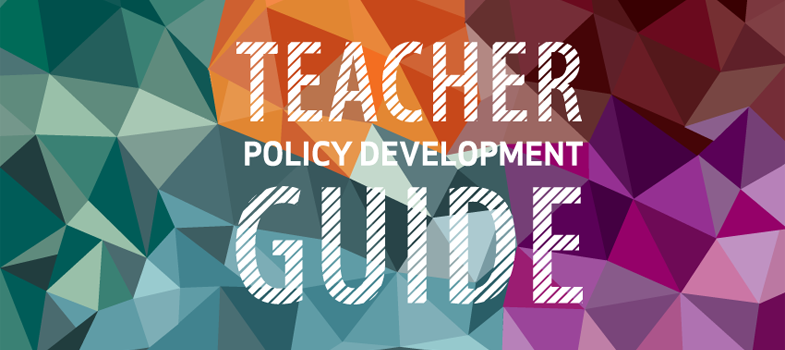4.2 Roles and responsibilities
A clear delineation of the roles of the different players involved in the process is vital to an effective policy development process (UNESCO and UNICEF, 2013), and ensures that the views of different stakeholders are reflected and incorporated into a final policy text. Thus, a crucial step in any teacher policy process is to identify relevant institutions and organizations, including MoEs, ministries of finance, schools, organizations representing teachers and students, parents’ associations, and international agencies (OECD, 2005). Different stakeholders play different roles at different stages of the policy process. For example, adoption/decision-making is usually the prerogative of parliaments or equivalent legislature in contexts where a teacher policy passes through a legislative process. Table 4.1 lists some of the main stakeholders and indicates their potential roles and positive involvement in the policy cycle. As noted earlier, all relevant bodies should crucially be involved in all stages of the policy development process to ensure effective policy development.
| Body/Organization | Roles | Impact of involvement on policy process |
|---|---|---|
|
|
|
|
|
|
|
|
|
|
|
|
|
|
|
|
|
|
|
|
|
|
|
|
|
|
|
The above table suggests some of the main stakeholders and relevant bodies that should be involved in the policy formulation process. The particular list for a given case is best determined at the country level, taking into account the specific socio-political and socio-economic context. Effective involvement of relevant bodies and stakeholders is contingent upon meaningful participation and capacity. In principle, stakeholders should have a say (as noted above) in all aspects of policy development, although not at the adoption stage (even though stakeholders may influence the process, for example by lobbying parliamentary representatives), which is mainly the prerogative of elected parliamentary representatives. Teachers, through their representative structures (such as unions) are a key constituency that should be involved in any teacher policy development process.
Participation requires creating spaces and mechanisms that facilitate social dialogue between government authorities and stakeholders, particularly as it regards teachers. In a democracy, the different stages of policy-making may be relatively public, open, and accessible to citizens, and the law may facilitate the participation of social actors in policy-making. Badat (2014) notes that such participation may take different forms, including formal and informal requests by those developing the policy for advice, consultations with statutory bodies such as teacher service commissions, and submissions and advocacy by stakeholders at public hearings and other events. As noted above, it is important to recognize that stakeholders possess very different and often unequal policy resources, including expertise and finances to engage in policy development.
Meaningful involvement and relationship-building require a culture of transparency and openness: stakeholders and relevant bodies involved in policy development should therefore be committed to the highest level of honest and open communication, and be willing to listen and to share information.
Information is crucial to participation, and governments should be committed to making information widely available. Open government and unrestricted access to information – to which many countries have committed – ensure that stakeholders and relevant bodies involved in teacher policy development are able to make informed choices and decisions.
Box 4.6 lists some questions that may help define the roles of relevant bodies and organize policy consultation.
BOX 4.6: CHECKLIST FOR ORGANIZING CONSULTATIONS FOR A TEACHER POLICY
- Have all bodies and stake holders affected by teacher policy been identified?
- Are learners, teachers and parents, as well as their representatives, included as key actors?
- Are the roles of the relevant bodies involved in the policy development process clearly defined and agreed upon?
- Have all those involved been provided with adequate information about the need for a policy and their own roles?
- Is there a need to provide training and support for relevant bodies and stakeholders involved in this process?
- Does this process require expert input? If so, by whom?
- Is information relevant to the policy process available to and widely shared with all stakeholders?
4.1.6 Phase 5: Monitoring and evaluation
